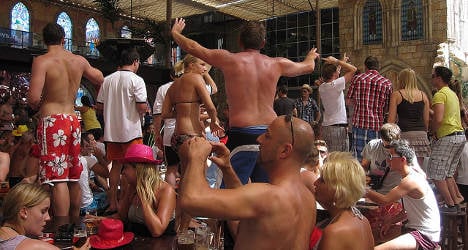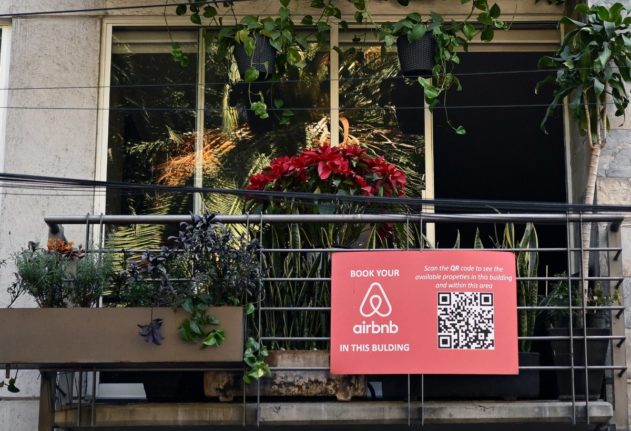Speaking in Palma de Majorca on Tuesday, Isabel Borrego said that while Spain wishes to offer "quality tourism", the response to such lewd behaviour must be to boost awareness of what is and is not acceptable.
"Above all, it is a question of making the business community and the tourists who come to this area conscious; we have to do this together, the online news site Público quoted Borrego as saying.
"Sometimes, imposing a ban does not resolve problems," she added.
Borrego said that on Tuesday afternoon she would be meeting in Madrid with the Balearic Islands tourism chief, Jaime Martínez, representatives of the British Embassy and UK tour operators to drive forward a joint institutional campaign to prevent such unsavoury incidents in Spain’s reports.
The secretary of state said that members of the Balearic government and Spain’s tourism office in London were already working on a publicity campaign that would be finalized in the coming days.
The idea is that internet sites and the UK media outlets which have reported on an incident in which a young British woman was filmed performing oral sex on a number of men before being rewarded with free alcohol will be chosen to run the resulting campaign.
The story was met with widespread indignation in Majorca, with the Balearic government appealing to Spain’s national administration and the local authorities in Magaluf to form a common front against what is being described in the media as ‘mamading’, coining from the Spanish word 'mamada', which means fellatio.
The regional government decried what it saw as a “degrading image of women and the Balearics.”
The Balearic branch of the Women’s Institute announced that it would be informing public prosecutors of bars where such “contests” took place. No legal action against any venue has yet come to light, however.
In Palma, the secretary of state for tourism stressed that the Spanish and Balearic governments wish to offer an image of “responsible” tourism, while claiming that the problem was limited to “a few streets” in Magaluf.
British tourists made up just under a third of the Balearic Islands record international tourism figure for 2013, when 11.1 million non-Spaniards travelled to the archipelago, leaving a combined €10.6 billion ($14.4 billion) behind them.
"For British tourism aimed at young people, sadly this is the best advert you could come up with," one Majorcan resident said to Atlas news agency when asked about the oral sex controversy.



 Please whitelist us to continue reading.
Please whitelist us to continue reading.
Member comments